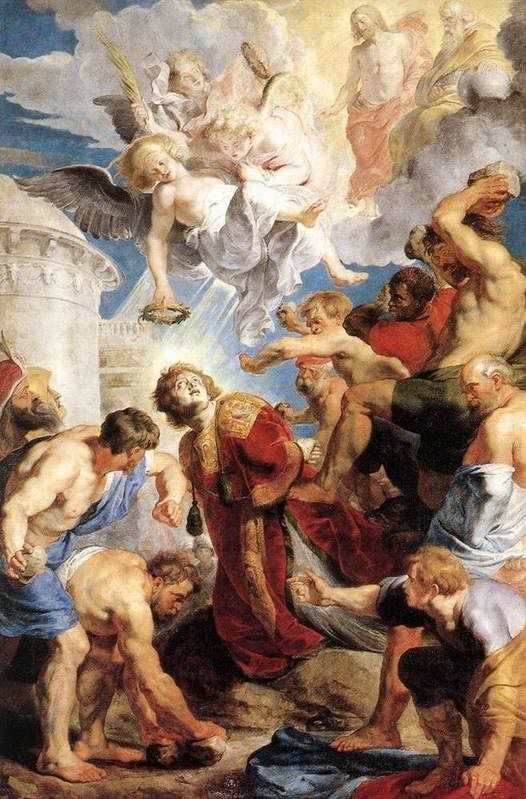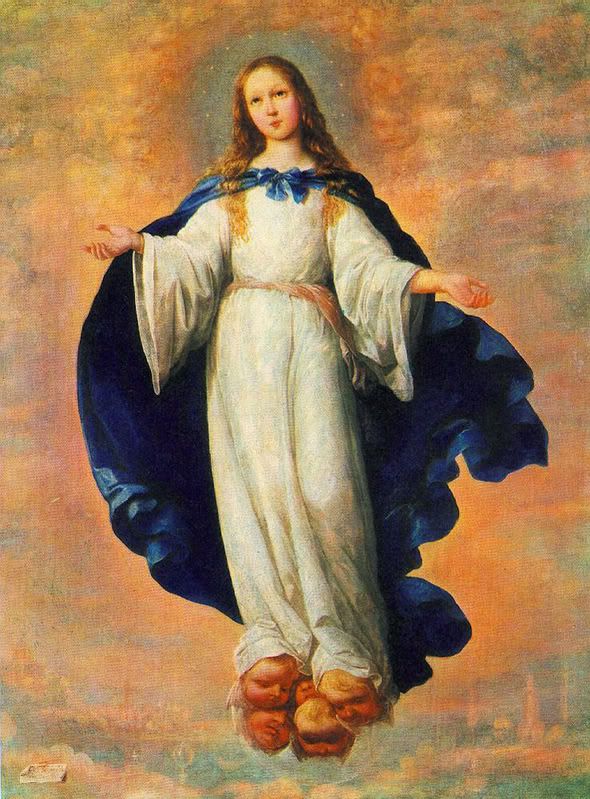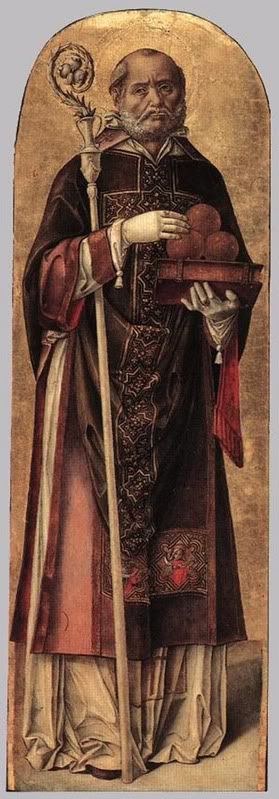
I haven't had a good "apologetics" type post in a while, and since I was asked about infant baptism and hadn't already discussed it, I figured I'd seize the opportunity and post about it now.
First I'll answer the "why" question...why is it that babies need to be baptized at all since they can't consent to baptism themselves? The simple answer is, Catholics believe in original sin, and believe that baptism washes away both original and personal sin. In children and infants, who have no personal sin, it washes away original sin, and infuses them with Sanctifying Grace. It makes us holy!
Now, it may be helpful to ask, what is original sin? For that we can look to the Catechism, which says, "original sin is called ‘sin’ only in an analogical sense: it is a sin ‘contracted’ and not ‘committed’—a state and not an act" (
CCC 404).
As
this article from Catholic Answers explains, "
This sin of Adam’s was not your ordinary sin. This was a sin that affected all mankind forever. This sin changed the course of human history. It did not just affect Adam personally; it also affected his human nature—which means it affected our nature, since we inherited it from him."
So, we are born into the state of original sin, separated from God. Baptism brings us back into union with God, and infuses our souls with Sanctifying Grace.
One man’s disobedience leads to death for all; one man’s obedience leads to life for all. We see this parallel in 1 Corinthians 15:21–22: "For as by a man came death, by a man has come also the resurrection of the dead. For as in Adam all die, so also in Christ shall all be made alive."Historically, we see that infant baptism was not a problem for the vast majority of Christians until quite recently. Children were baptized in the early Church (regardless of how that was done...in the Latin rite we baptize by infusion...that is, we pour water, to mirror the way the scriptures describe the Holy Spirit being poured on us, in the East they immerse babies.) Jews circumcised babies on the 8th day, that is how their children became Jews. When Christ came around, they were told baptism was the new circumcision, baptism was the way which children would become Christians. If it was the new circumcision, BUT it wasn't supposed to be done to babies anymore as circumcision was, surely this would have been mentioned, as the assumption would be that with this particular parallel, unless otherwise noted, baptism, as circumcision, was to be done to babies as well as adults. And yet, nowhere in the scriptures do we see any clarification that it's not to be done to babies as circumcision was.
Now, with most controversies, we find many writings in the early Church discussing the various sides of the debate. The earliest we see any talk about whether or not babies should be baptized is in the 3rd century...and the controversy was not "should babies be baptized?" but rather "WHEN should babies be baptized?" You see, some people thought that since it was the new circumcision, they should wait until the eighth day to baptize babies as they did with circumcision. The decision was made that it was not necessary to wait until the eight day.
After that, the next time infant baptism was widely questioned in any way was the Reformation over a millenium later.
So, putting aside the issue for the moment of how baptism was done, historically it can't be denied that infant baptism was completely accepted in the early Church.
Now, let's look at the issue of how baptism is done.
As far as when something other than baptism by immersion was used, it's clear that it was already happening in the first century. The Didache, also called "The Teaching of the Twelve Apostles," a kind of liturgical manual, is commonly held to have been written as early as 70 AD, or at the very latest, the beginning of the second century. From
Catholic Answers:
In its seventh chapter, the Didache reads, "Concerning baptism, baptize in this manner: Having said all these things beforehand, baptize in the name of the Father and of the Son and of the Holy Spirit in living water [that is, in running water, as in a river]. If there is no living water, baptize in other water; and, if you are not able to use cold water, use warm. If you have neither, pour water three times upon the head in the name of the Father, Son, and Holy Spirit." These instructions were composed either while some of the apostles and disciples were still alive or during the next generation of Christians, and they represent an already established custom. So again, historically, the practice of baptism by infusion was already accepted as valid at the time this was written. Basically, it comes down to the fact that baptism is a sacrament (an outward sign of an inward grace) that uses water as the physical manifestation of God washing away sins. When we wash ourselves physically, it's not necessary to immerse ourselves in a bathtub of water...we can also take showers where water pours over us. There is a lot of language in the scriptures that describe the Holy Spirit being "poured" onto us, which backs this up.
I'd also mention that for those who die unbaptized, especially children, we trust in God's infinite mercy and hope with confidence in His mercy that they will be taken care of, whether that is by an implicit baptism of desire or some other way, we don't know.
And no, holy water isn't expensive, lol! It isn't bought, regular water is blessed by the priest, and this is how it becomes holy water =) Hope that helps, and kudos to Hollie for explaining Catholic stuff to people! :-D
 I was playing around on the internet reading stuff and found this quote, which stopped me in my tracks and made me think, "Wow, so true."
I was playing around on the internet reading stuff and found this quote, which stopped me in my tracks and made me think, "Wow, so true."










